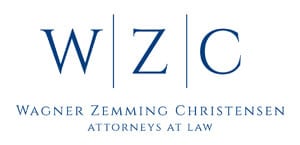Should You Talk to an Insurance Adjuster After a Car Accident?

We buy car insurance to protect ourselves when the unexpected happens, but that does not mean the insurance companies are looking out for your best interests. Like all businesses, they are most interested in making a profit, which means paying as little for accident claims as possible. So, while you may need to talk to an adjuster at some point after a crash, it’s vital to watch what you say – and to speak to an attorney first.
As experienced car accident attorneys in San Bernardino, the team at Wagner Zemming Christensen knows how insurers think. We can use that knowledge to handle settlement negotiations on your behalf while you rest and recuperate. In the meantime, here are some tips on dealing with insurance adjusters after a car accident.
Never Say “I’m Sorry” or Anything Else Implying You’re at Fault
In the aftermath of a car accident, it’s human nature to want to express empathy. However, saying “I’m sorry” or anything that might imply fault can have unintended consequences when speaking to an insurance adjuster. Even if you believe you had some role in the accident, it’s important to remember that, in the eyes of the law, you might be entirely (or at least largely) blameless. An insurance adjuster can use any statements to diminish your claim or shift blame toward you, potentially reducing the compensation you would otherwise be entitled to.
Stick to the Basic Facts of the Crash
When recounting the details of an accident to an insurance adjuster, stick to the essential facts. Insurance adjusters are trained to extract information that could limit the liability of their company and, in turn, minimize the amount they have to pay out. Any additional details, opinions, or personal interpretations you provide can inadvertently give them opportunities to challenge or dispute your account.
Do Not Agree to a Recorded Statement
An insurance adjuster might request that you provide a recorded statement about the collision. While this might seem like a simple process, it’s vital to tread with caution. Recording their conversation with you is not just a routine procedure or a way for them to improve customer service. It is also a tool for insurance companies to get you to say something on record they can use against you later. The insurance company wants you to inadvertently say something that conflicts with your past statements or future testimony. It can exploit any inconsistencies to challenge the validity of your claim.
Do Not Exaggerate Your Injuries, But Don’t Downplay Them, Either
In the days following a car accident, adrenaline and shock can mask the true extent of your injuries. Consequently, it might feel natural to dismiss seemingly minor aches or discomfort when speaking to an insurance adjuster. However, doing so can hurt your personal injury claim. Some injuries, especially those related to soft tissue or internal damage, take time to manifest themselves. By prematurely downplaying your injuries, you risk undervaluing your claim, potentially leaving yourself with medical expenses not covered by your settlement agreement.
That said, exaggerating your injuries can be just as damaging to your claim as underplaying them. Insurance companies employ investigators to verify claims. If they catch you overstating the severity of your injuries or their impact, they can cast doubt over the legitimacy of your entire claim. Such discrepancies can lead to a reduction in the compensation amount or even a complete denial.
Contact Our San Bernardino Car Accident Attorneys Today
The best step you can take to protect yourself from legal mishaps is to let a capable and dedicated attorney talk to the insurance adjusters on your behalf. That’s just what you’ll find at Wagner Zemming Chirtensen. Let our San Bernardino injury lawyers handle all communication with the insurers and fight on your behalf for fair compensation. Call (951) 686-4800 now or complete our contact form for a confidential consultation.
